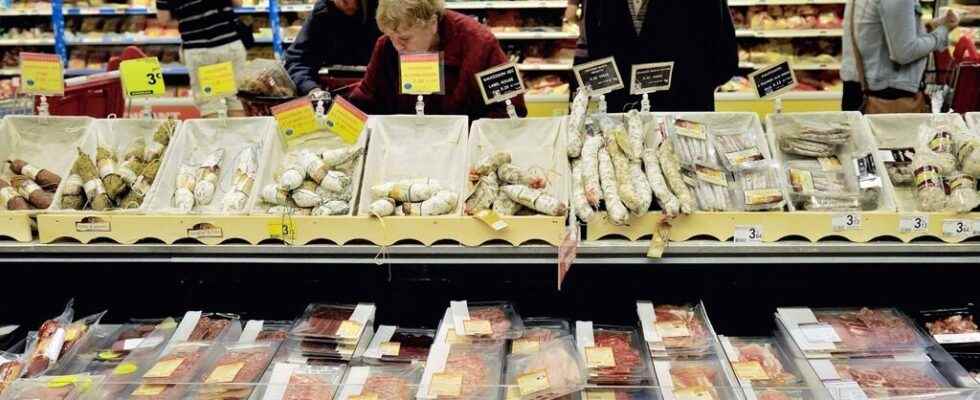French health authorities confirm “ the existence of an association between the risk of colorectal cancer and exposure to nitrates and nitrites “, in particular via processed meat, in an opinion published on Tuesday which recommends reducing exposure to nitrites in food.
The National Food Safety Agency (ANSES) affirms that the analysis of the data of the scientific publications published on the subject ” joins the classification of the International Agency for Research on Cancer (IARC) “.
In 2015, the IARC of the World Health Organization (WHO) classified processed meat, including cold cuts, as carcinogenic (category 1). It would promote, among other things, colorectal cancers which kill nearly 18,000 people a year in France. Ingested nitrites are considered probable carcinogens (category 2A).
► To read also: Nitrates and nitrites: what are the health risks of these food additives?
The ANSES ” recommends reducing the exposure of the population to nitrates and nitrites by proactive measures by limiting exposure through food “. Historically, pork butchers have used nitrated components to extend the shelf life of products and prevent the development of pathogenic bacteria that cause botulism in particular, a serious neurological condition that has been largely forgotten due to health progress. These are also the components that give the naturally gray ham its pink color.
” Although reducing the level of additive is likely to significantly increase the microbiological risk “- and therefore the development of diseases such as salmonellosis, listeriosis or botulism -, ANSES ” considers that it can be envisaged subject to the implementation of validated compensatory measures to control this risk “. For example, by shortening the expiry dates of products or by acting at the level of the manufacturing stages, with bioprotection measures in farms and slaughterhouses.
« Hidden Nitrites »
While major manufacturers, such as Herta or Fleury Michon, have already launched ranges of ham ” nitrite free “, the agency warns against alternatives based on” plant extracts “or” vegetable broths “: ” This does not constitute a real alternative insofar as (these substituents) naturally contain nitrates which, under the effect of bacteria, are converted into nitrites “.
” These so-called productsno added nitrite” Where “zero nitrite” therefore contain hidden nitrates and nitrites “, underlines the agency. This winter in France, tough debates have pitted pork butchers, who defend a century-old know-how in compliance with the law, against consumer associations and the League against Cancer, who are pleading for the outright ban on additives. controversial.
In February, the National Assembly voted the principle of a ” decline trajectory » maximum doses of nitro additives in charcuterie. For its part, the government had said it wanted wait for the return of ANSES before pronouncing measures to implement the text, and had undertaken ” to follow the advice of the agency.
ANSES also considers it important to better define the ” permissible daily doses » (ADI) of nitrates and nitrites. Because she notes a paradox: the existence of a link between the consumption of processed meats and the risk of cancer, even though the maximum recommended doses – ie 150 grams of charcuterie per week in France – are respected by 99% of the population.
(With AFP)
► To read also: Food: controversy over nitrite additives in charcuterie
